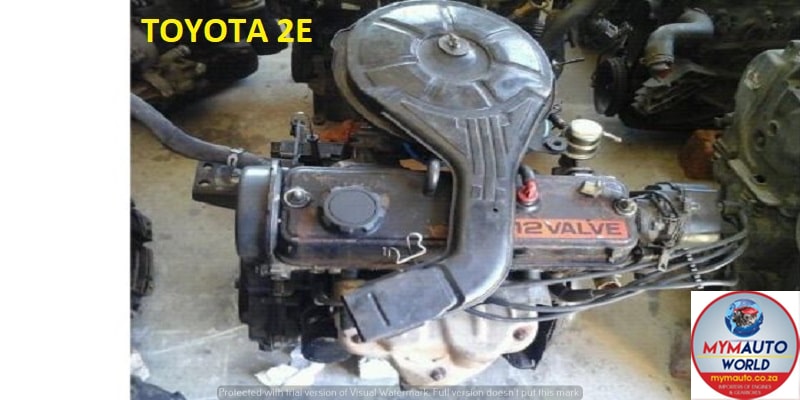Engine Purchasing Professional Tips on Selecting the Right Engine for Your Specific Needs
Selecting the appropriate engine for your certain demands includes a complicated interaction of elements that go past mere horse power numbers. By diving into the ins and outs of power versus efficiency, reviewing gas ratings, and budgeting for long-term costs, one can genuinely maximize their engine choice.
Power Vs. Efficiency: Discovering the Balance

When picking an engine, it is essential to strike a balance in between power and efficiency to fulfill your details requirements properly. Power refers to the engine's ability to produce power for propulsion, establishing aspects like acceleration, pulling capability, and total efficiency (Toyota Tazz Engine For Sale). On the various other hand, efficiency associates with exactly how well the engine utilizes fuel to create power, affecting variables such as fuel economic situation and environmental friendliness
Accomplishing the right equilibrium between power and effectiveness is vital because an engine that is too powerful may consume excessive gas, causing higher operating expense and unnecessary strain on the setting. On the other hand, an engine that prioritizes efficiency over power might result in slow-moving efficiency, particularly in demanding circumstances like hauling hefty loads or driving uphill.
To make an informed choice, think about elements such as your normal driving conditions, the designated use the vehicle, and your personal preferences. By assessing your needs and priorities, you can choose an engine that strikes the best balance in between power and efficiency, making sure optimum efficiency while minimizing ecological influence and operating costs.
Recognizing Engine Size and Type

Additionally, engine type plays an important duty in identifying the efficiency attributes of an engine. Usual engine kinds include inline engines, V engines, and rotating engines, each with its one-of-a-kind benefits and drawbacks. The engine kind affects aspects such as the engine's size, weight circulation, and power shipment. Comprehending the interaction in between engine size and kind is crucial in picking an engine that aligns with your certain needs and top priorities, whether it be power, efficiency, or an equilibrium of both.
Consider Your Vehicle's Requirements
If you are looking for an engine for a heavy-duty vehicle that will certainly be utilized for towing, you will require a powerful engine with high torque capacities. On the other hand, if you are choosing an engine for a small auto primarily used for city commuting, gas efficiency might be a more read here critical variable to take into consideration.

Evaluating Fuel Effectiveness Ratings
Analyzing fuel performance scores is an important aspect of choosing the ideal engine for your vehicle, making sure expense savings and environmental sustainability. Gas effectiveness rankings, typically determined in miles per gallon (MPG) for gasoline engines or kilowatt-hours per 100 miles (kWh/100 miles) for electric engines, suggest exactly how much a lorry can take a trip on a details amount of fuel or electricity. Greater MPG or lower kWh/100 miles values represent extra efficient engines, equating to decreased fuel prices and reduced carbon discharges.
When evaluating fuel performance ratings, consider your driving behaviors and requirements. If you commute long ranges daily, a very fuel-efficient engine can cause significant savings gradually. In addition, contrast various engine options within the very same lorry class to determine the most economical selection. Elements such as engine size, weight, aerodynamics, and hybrid or electrical capabilities can all influence gas effectiveness.
Budgeting for Long-Term Expenses
Strategically intending for lasting expenses is necessary when picking an engine, making sure economic sustainability over the automobile's life-span. While the preliminary purchase price of an engine is best site a significant factor, it is important to take into consideration the long-term expenses associated with upkeep, fixings, and gas intake.
Moreover, researching the availability and cost of substitute parts for the chosen engine is essential in budget plan preparation. Engines with easily available and economical parts can substantially affect long-lasting maintenance costs. Additionally, thinking about the engine's longevity and anticipated life expectancy can assist avoid unanticipated replacement costs in the future. By very carefully budgeting for these lasting costs and factoring them right into the decision-making process, people can choose an engine that not just satisfies their instant requirements but likewise stays cost-effective throughout its life-span.
Verdict
To conclude, selecting the best engine for your details needs calls for stabilizing power and performance, understanding engine size and type, considering your lorry's demands, assessing gas performance ratings, and budgeting for long-term expenses. By very carefully thinking about these factors, you can make certain that you select an engine that meets your needs and supplies optimal efficiency for your car.
To additionally improve the choice process of an engine that strikes the optimal balance in between power and effectiveness, it is necessary to dig right into the ins and outs of comprehending engine dimension and kind. Engine size refers to the overall quantity of air and gas that can be pressed with address the engine cylinders. Typical engine types consist of inline engines, V engines, and rotating engines, each with its unique benefits and downsides. Understanding the interaction between engine size and type is vital in selecting an engine that aligns with your particular needs and priorities, whether it be power, efficiency, or an equilibrium of both.
Gas performance ratings, normally gauged in miles per gallon (MPG) for gas engines or kilowatt-hours per 100 miles (kWh/100 miles) for electric engines, suggest just how far an automobile can take a trip on a specific amount of gas or electrical power.